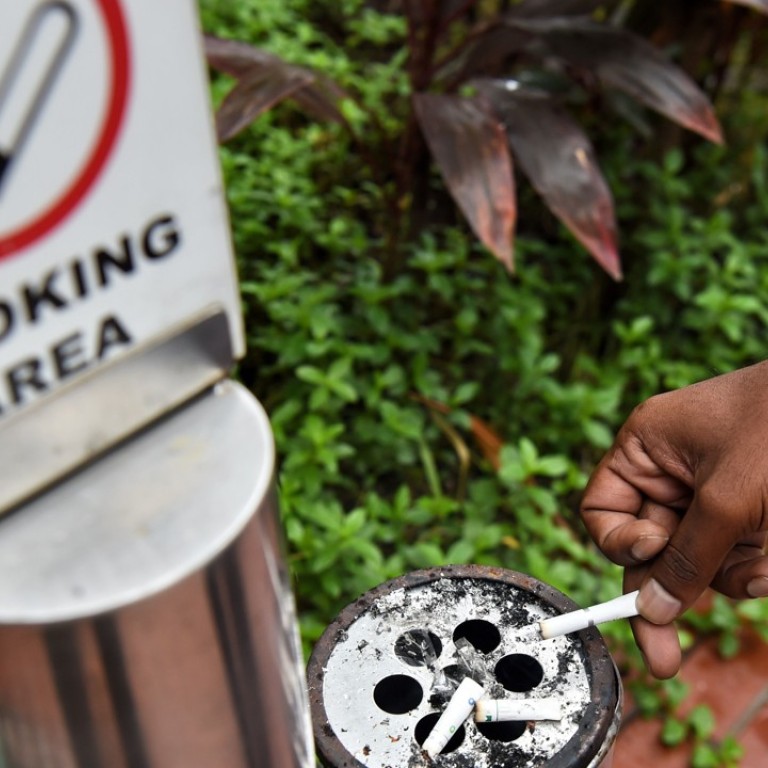
Big tobacco uses ‘scare tactics’ to thwart government controls in Southeast Asia, including preventing tax increases on cigarettes
WHO says tobacco use causes lung cancer and heart disease, among other ailments, and kills more than 7 million people each year
A global treaty to fight the health impact of tobacco has suffered substantial setbacks in Southeast Asia, home to some of the world’s highest concentrations of smokers, a watchdog group said on Monday.
The powerful tobacco lobby last year stopped proposed cigarette tax increases in Malaysia and Indonesia, while Vietnam waived all duties on dried tobacco imports from Cambodia, the Southeast Asia Tobacco Control Alliance said in a report.
“We have found that the tobacco industry does not take a holiday from undermining or thwarting or delaying government efforts to control tobacco use,” Mary Assunta Kolandai, senior policy adviser for the alliance, told a news conference.
We have found that the tobacco industry does not take a holiday from undermining ... government efforts to control tobacco use
The annual report, released at a tobacco conference at the Western Pacific office of the World Health Organisation (WHO) in Manila, monitors the region’s compliance with the 2003 WHO framework convention on tobacco control.
WHO says tobacco use causes lung cancer and heart disease, among other ailments, and kills more than 7 million people each year.
Indonesia, where 76.2 per cent of males aged 15 or older smoke, Vietnam (47.7 per cent), and the Philippines (43 per cent) have some of the world’s highest concentrations of tobacco users, it said.
Tobacco use among adult males is also heavy in Cambodia (44.1 per cent), Laos (56.6 per cent), Malaysia (43 per cent) and Thailand (41.4 per cent), it said.
While tobacco taxes were the “most cost-effective way to reduce tobacco use”, WHO coordinator for tobacco and economics Jeremias Paul said only a few mostly European countries have imposed the ideal rate – equivalent to 75 per cent of the retail price.
“One of the reasons why it’s underutilised or not being implemented globally is what I term as the scare tactics of the tobacco industry,” he told reporters.
This includes the argument that higher cigarette taxes would encourage smuggling and lawsuits while reducing state revenues and employment, Paul said.
The alliance report also said new rules for “plain packaging” in Malaysia and pictorial health warnings for cigarette packs in Myanmar, Laos, and Cambodia, were either stopped or delayed last year.

.png?itok=arIb17P0)